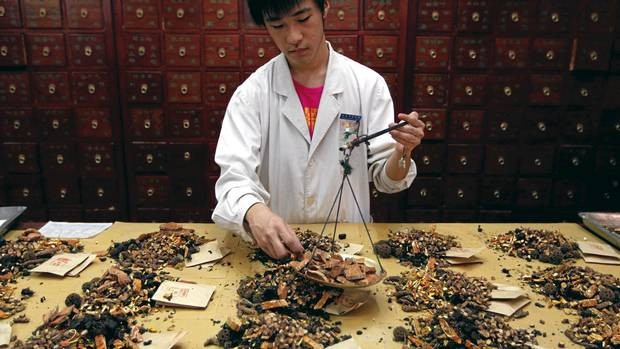Miracle COVID-19 cure? Madagascar artemisia plant extract claimed to combat disease
Artemisia annua has been used in Chinese traditional medicine for over 2,000 years to treat fever,pain as well as malaria.
Madagascar is home to a plant that could be a potential treatment against the coronavirus. The African island nation has been using artemisia plant extracts since April as part of its naturopathic treatment to combat Covid-19. The country's leader, President Andry Rajoelina has been promoting the plant extract as the main ingredient of a tonic drink proven by the World Health Organisation to work against malaria.
Although no strong evidence has been established in its effectiveness to treat Covid-19, the nation's leader repeatedly claimed artemisia's efficacy stating that successful trials have been conducted on the artemisia based COVID-Organics drink.
Originally found in Asia, artemisia annua has been used in Chinese traditional medicine for over 2,000 years to treat fever, pain as well as malaria. More commonly known as sweet wormwood, it has been used in alternative medicine and even found its way into some alcoholic beverages.
The plant's active ingredient which is extracted from its dried leaves, is called artemisinin. Chinese scientists pioneered the exploration of its properties in the 1970's when they were trying to find a cure for malaria. The WHO acknowledged and recommended artemisinin-based combination therapies - or ACTs- against malaria specifically for strains that are now resistant to chloroquine. The combined derivatives of ACTs and other medicinal substances were found to reduce malaria parasites in the body.
The global access to ACTs in malaria-endemic countries has greatly reduced the death toll of the disease over the past 15 years.
The exact composition of the COVID-Organics drink is not yet known, but the Madagascar government says more than 60% of the drink is derived from the artemisia plant. They have also started marketing the plant extracts in capsule form as well as an injectable solution, BBC reports.
#Madagascar lancera demain le remède traditionnel amélioré composé d’Artemisia & de plantes médicinales Malagasy suite aux études scientifiques de l’IMRA (Institut Malagasy de Recherche Appliquée).
— Andry Rajoelina (@SE_Rajoelina) April 19, 2020
1ers tests cliniques encourageants, 1ère étape franchie ! pic.twitter.com/MRJTZKvujr
According to German and Danish scientists who have been running laboratory site tests on the famed plant, they say the tests did show some level of effectiveness against the coronavirus as it displayed antiviral activity. They are currently working with the University of Kentucky to conduct human clinical trials at some point later on.
Despite its proven effectiveness against the mosquito-borne disease, the WHO discourages the use of non-pharmaceutical forms of artemisinin which has been marketed in the form of unregulated dosages of herbal teas. Health authorities express concern that unregulated consumption could trigger malaria parasites to develop resistance. They have called out several countries in Southeast Asia where such resistance has already been documented.

© Copyright IBTimes 2025. All rights reserved.




















